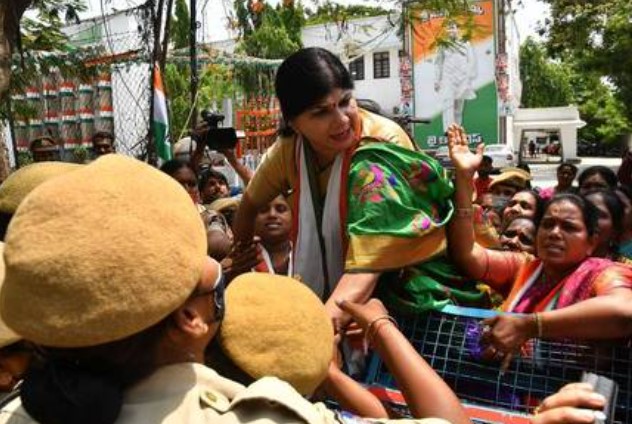Rahul Gandhi Denied Permission to Visit Osmania University,Protests
No non-academic programmes on campus

Protests by Congress workers have erupted in Telangana after Congress leader Rahul Gandhi was denied permission to visit Osmania University, Hyderabad on May 6 and 7, along with other engagements in the state. Members of the Congress party's student wing, the National Students Union of India (NSUI) had filed a writ petition in the Telangana High Court to grant Gandhi permission.
The judge had, on May 2, directed the Vice Chancellor of the University to consider the students’ plea. However, the VC reaffirmed his decision to deny Gandhi permission to have a face-to-face interaction with the students.
The authorities defended their decision saying after a court order in 2017, the institution had adopted a resolution not to allow any non-academic programmes or political programmes in the campus. Meanwhile, Congress cadres claim that the permission was denied due to political pressure from the ruling party Telangana Rashtra Samithi (TRS). They had been protesting in huge numbers demanding permission for the programme to be held as planned. Counter protests were also held by the student wing of the TRS. As some of the protests turned violent, 18 protesting members of the NSUI were arrested.
The Congress cadre members also assure that the interaction between Gandhi and the students will be non-political and was supposed to be a nation-building exercise. According to sources, the plan was for Gandhi to visit hostels and interact with students on issues such as unemployment.
Manvatha Roy, a PhD scholar and member of the NSUI at Osmania University said, “this is a deliberate attempt to stop us from voicing our concerns. This programme was planned purely as a nation-building exercise, for students to be able to talk openly about the issues they face, and give their opinions on policies that affect them. Students need to have platforms like this.”
“Unemployment is a big issue here. The ruling party had promised to provide more jobs but the condition here is still bad. We need answers, we need solutions. They cannot silence us," added Roy, who was one of the petitioners.




